Behind the scenes at the Canadian Museum of Nature
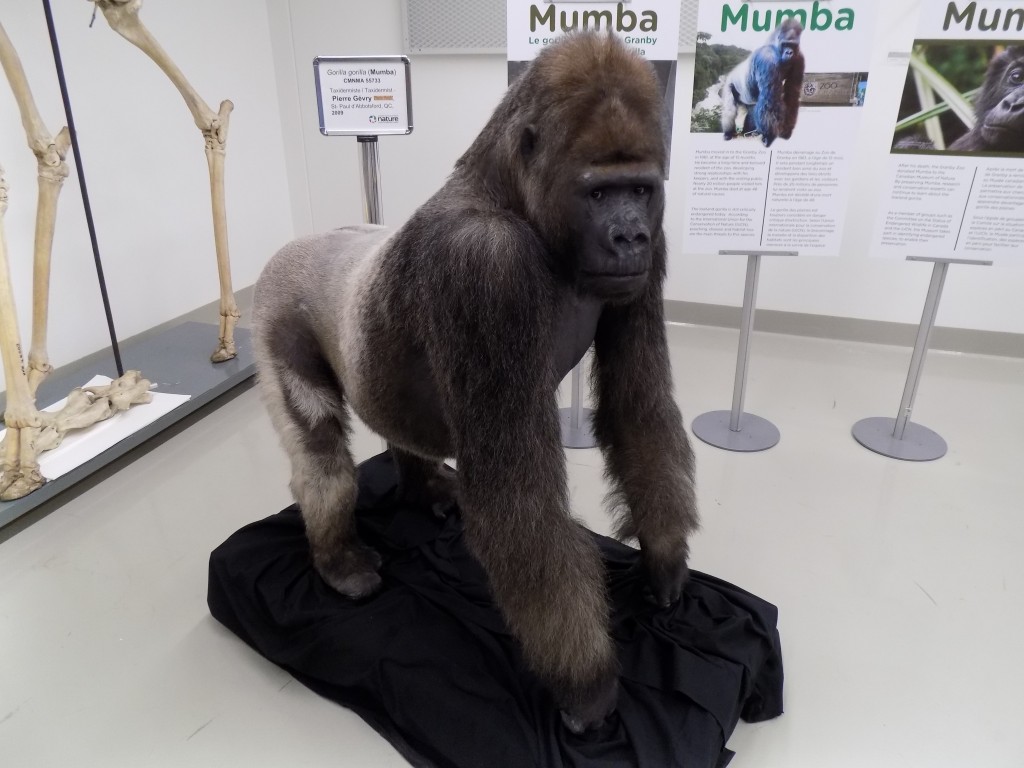
Mumba the gorilla was born in Cameroon and found orphaned. He spent most of his life at the Granby Zoo near Montreal. The lifelong bachelor enjoyed drinking tea and died in 2008 at age 48 (old for a gorilla), before being acquired by the Canadian Museum of Nature. Photo: James Morgan
A lot goes on behind the scenes at a museum. On October 15, the Canadian Museum of Nature in Ottawa held an open house at its research and collections facility in Gatineau. Visitors got to see all kinds of fossils, minerals, plants, skeletons, and invertebrates from the collection that are not on display at the regular museum. The research labs were open where the genetics and physical structure of a variety of creatures are studied and prepared for preservation. The library and archives also showcased its rare books and pieces of natural art. The open house was extremely popular, especially with families. Finding a parking space wasn’t easy. In a world full of entertainment, electronic gadgets, and other distractions, the miracles of nature still manage to draw a crowd. Here are a few photos from what could be easily called a museum within a museum.
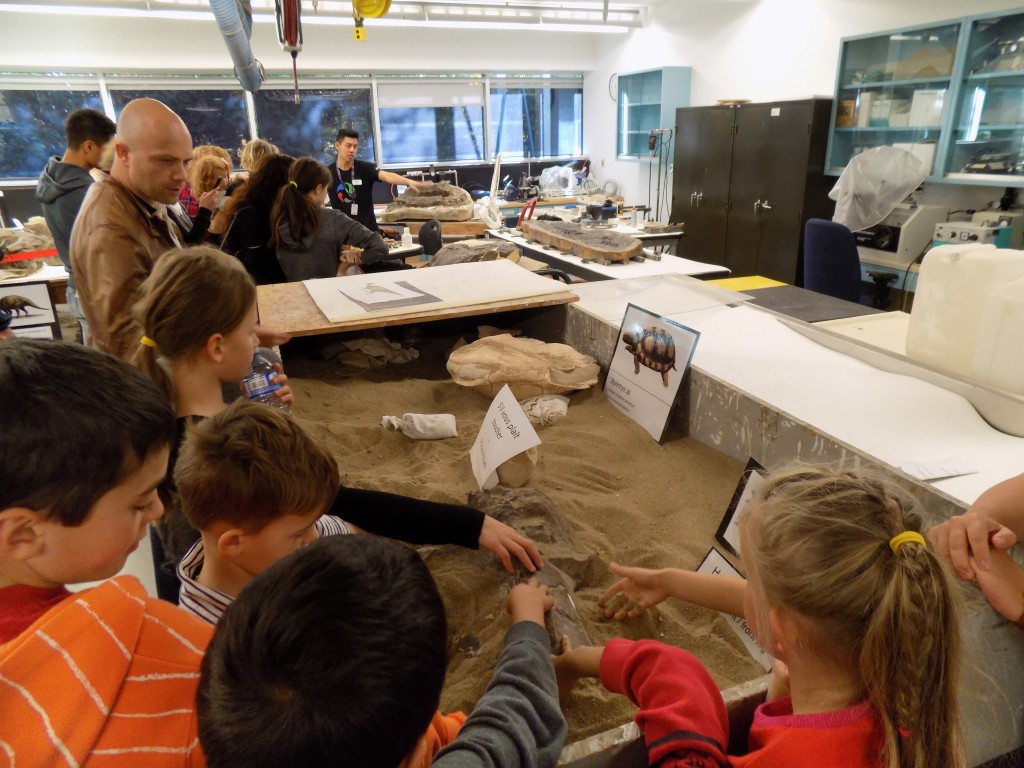
Young paleontologists really enjoyed touching ancient fossils in the room where artifacts are prepared for preservation. Photo: James Morgan
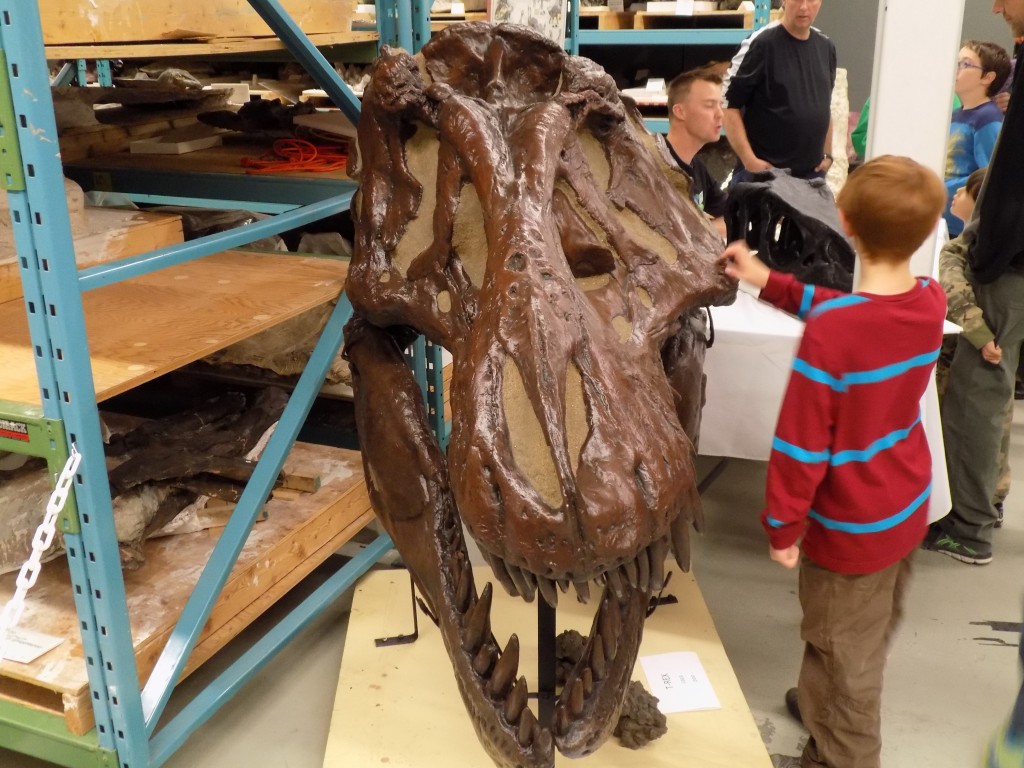
Dinosaurs never cease to fascinate children. This is the skull of a tyrannosaurus rex. Photo: James Morgan
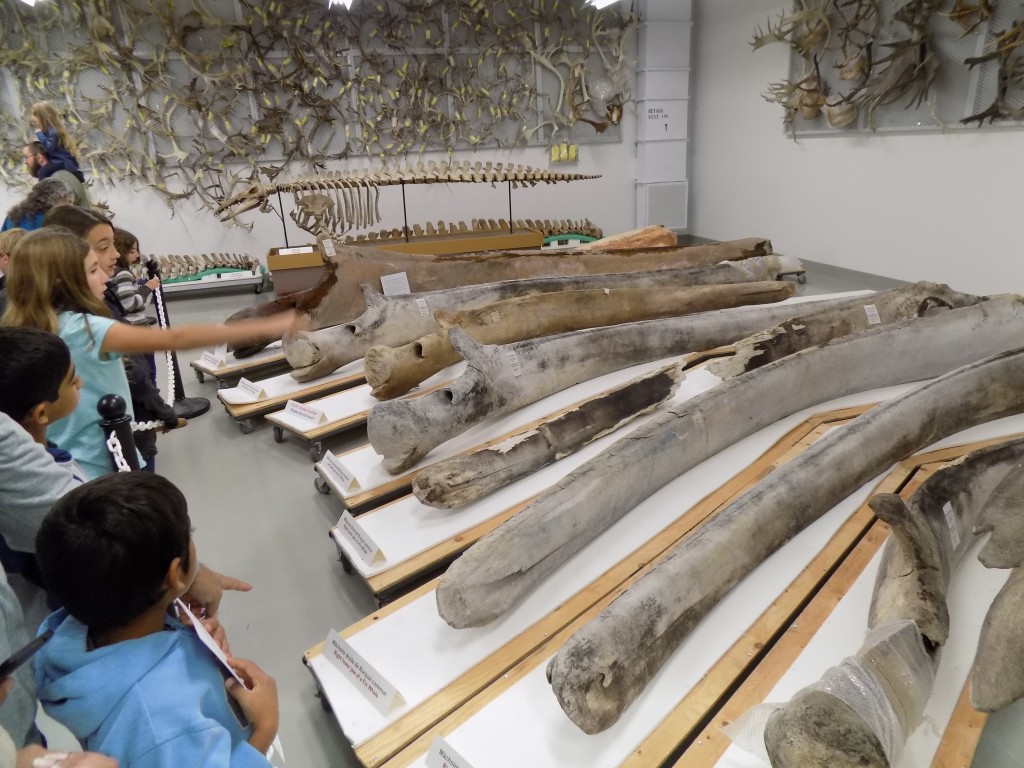
A display of whale bones. An entire beluga skeleton is on display in the background, below a wall of thousands of antlers. Photo: James Morgan
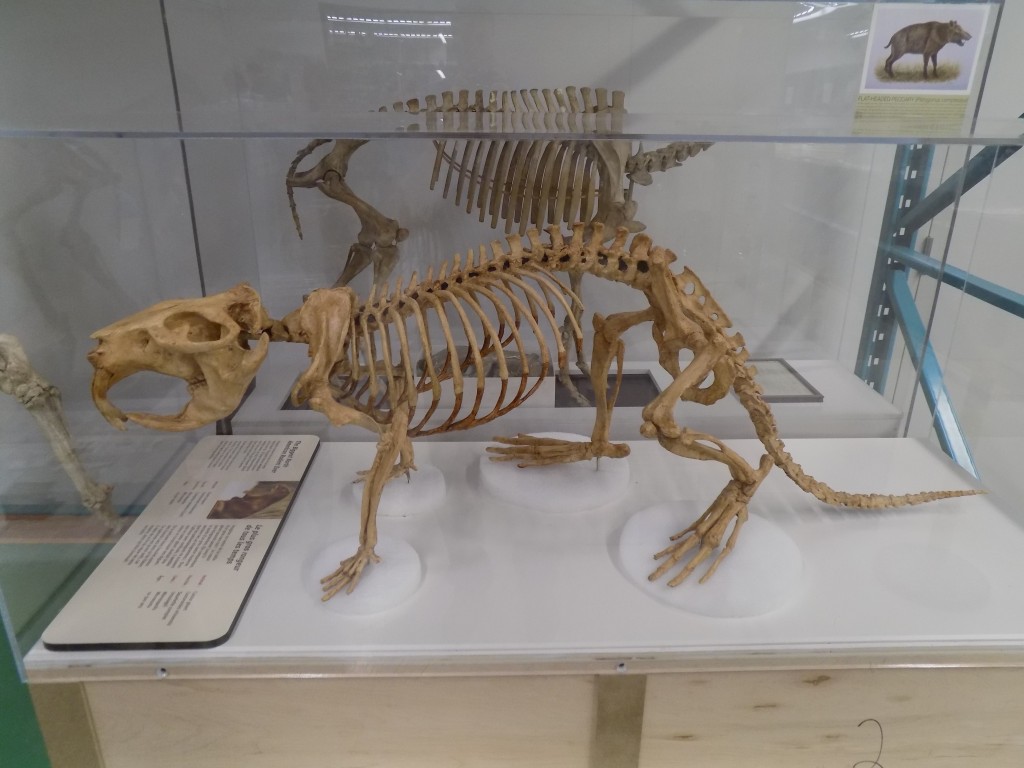
This giant beaver skeleton is estimated to be 10,500 years old and is the largest rodent ever found in North America. Photo: James Morgan
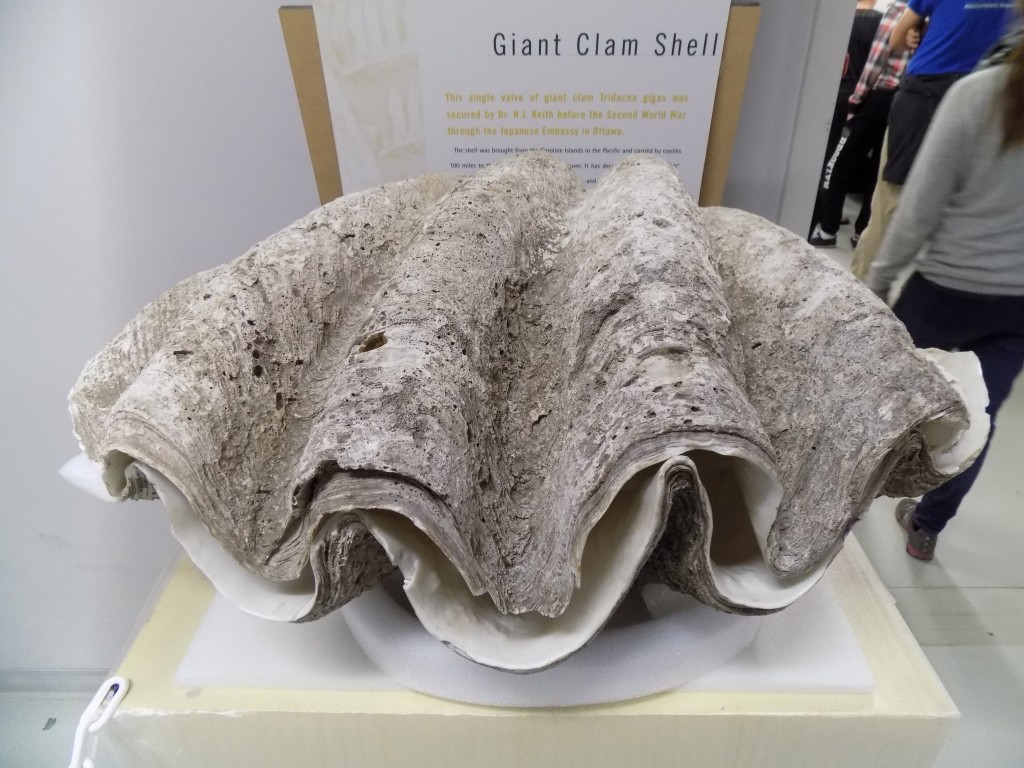
This giant clam shell once decorated a backyard garden in Pembroke, Ontario before coming to the Canadian Museum of Nature in 1951. Photo: James Morgan
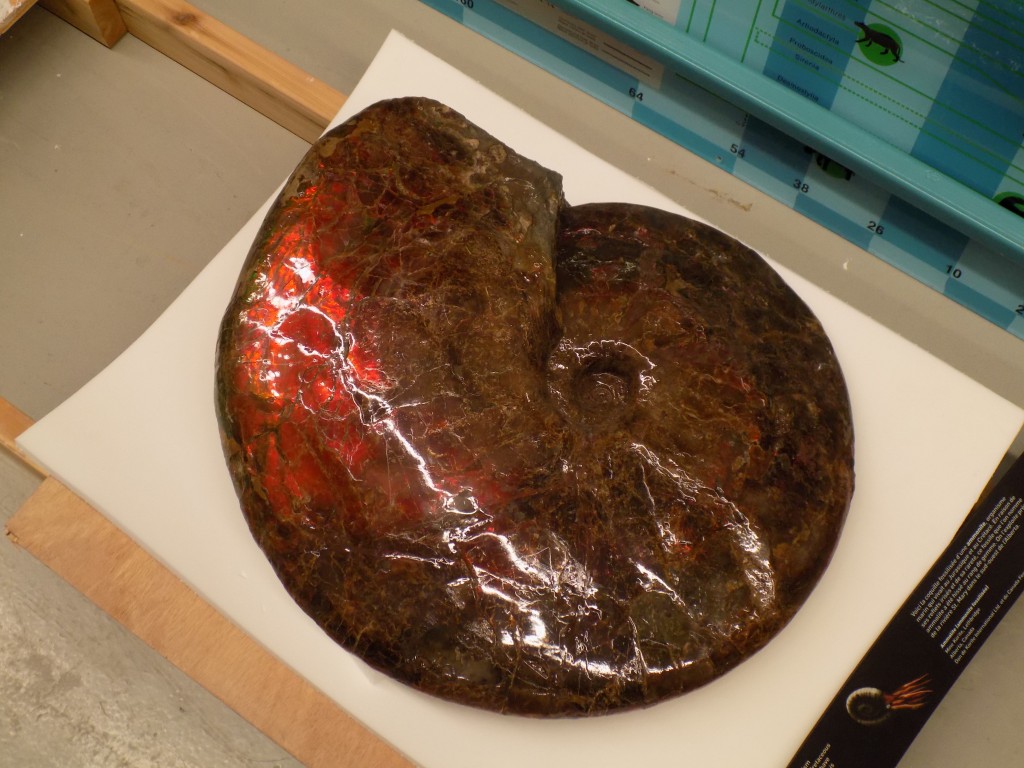
Ammonites are ancient, extinct sea creatures. Their fossilized remains are often very colorful like this one, which also classifies them as a gemstone. Photo: James Morgan
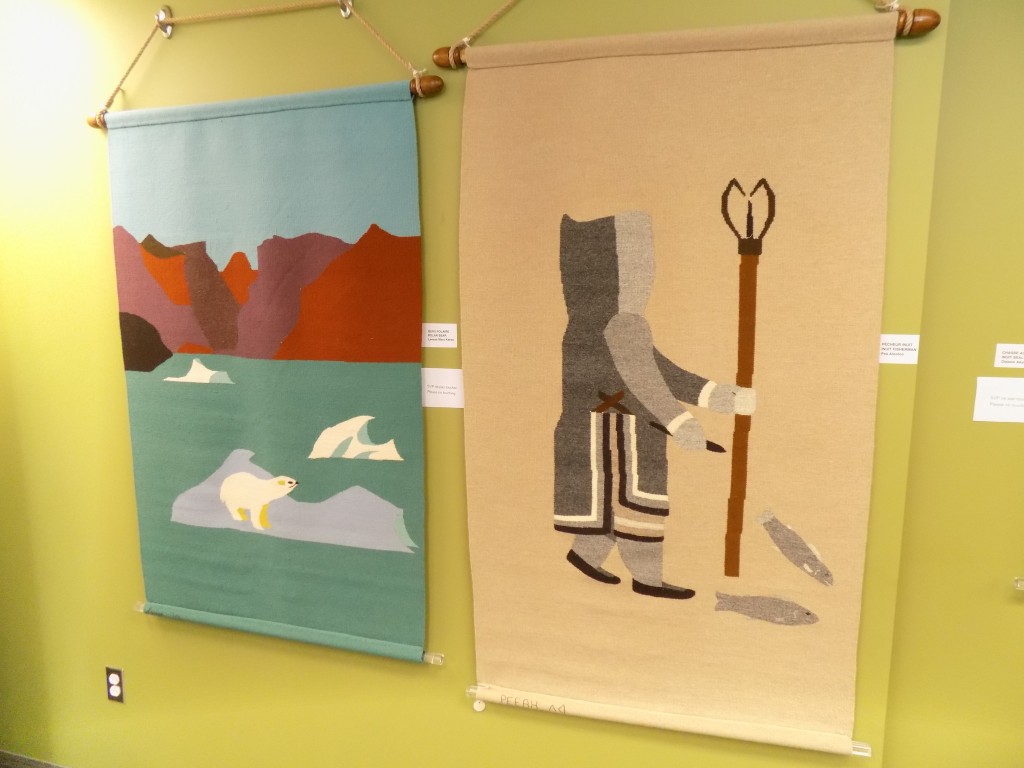
Inuit weaving of the natural landscape and outdoor activities from Pangnirtung, Nunavut in Canada’s arctic. Photo: James Morgan





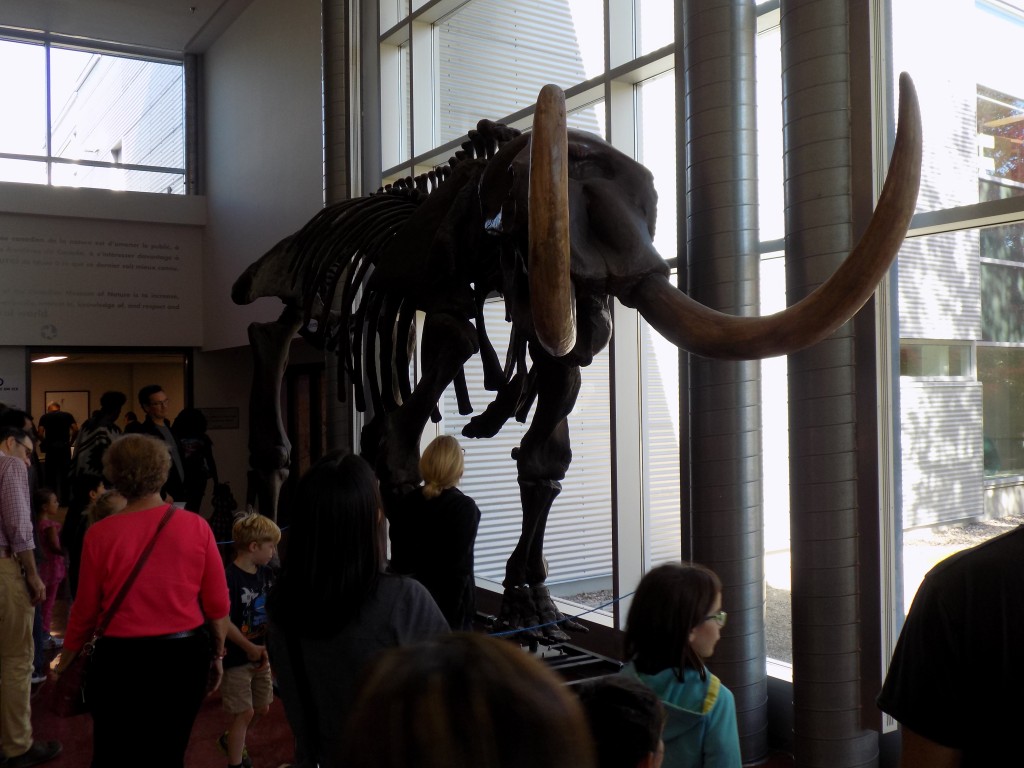
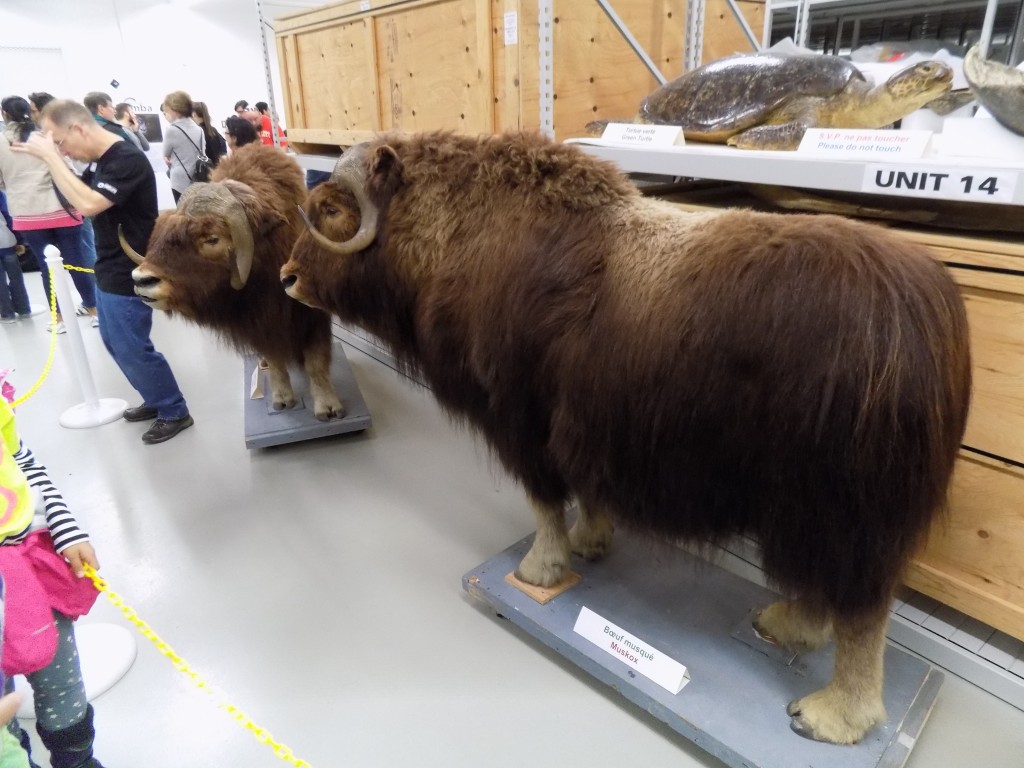
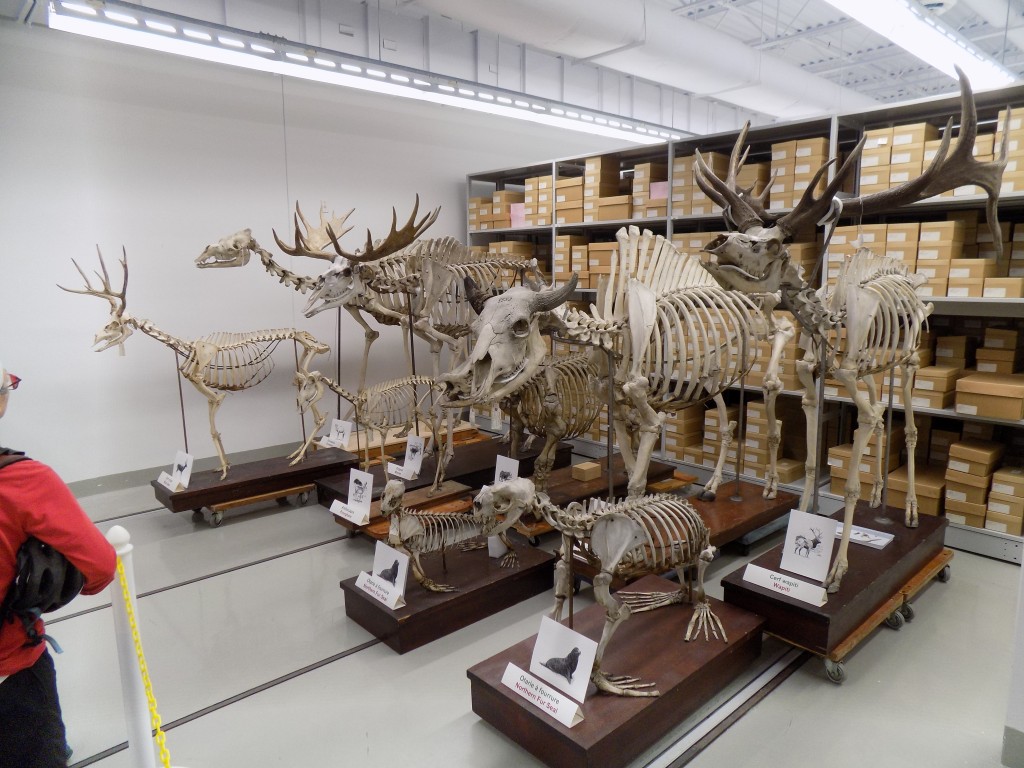
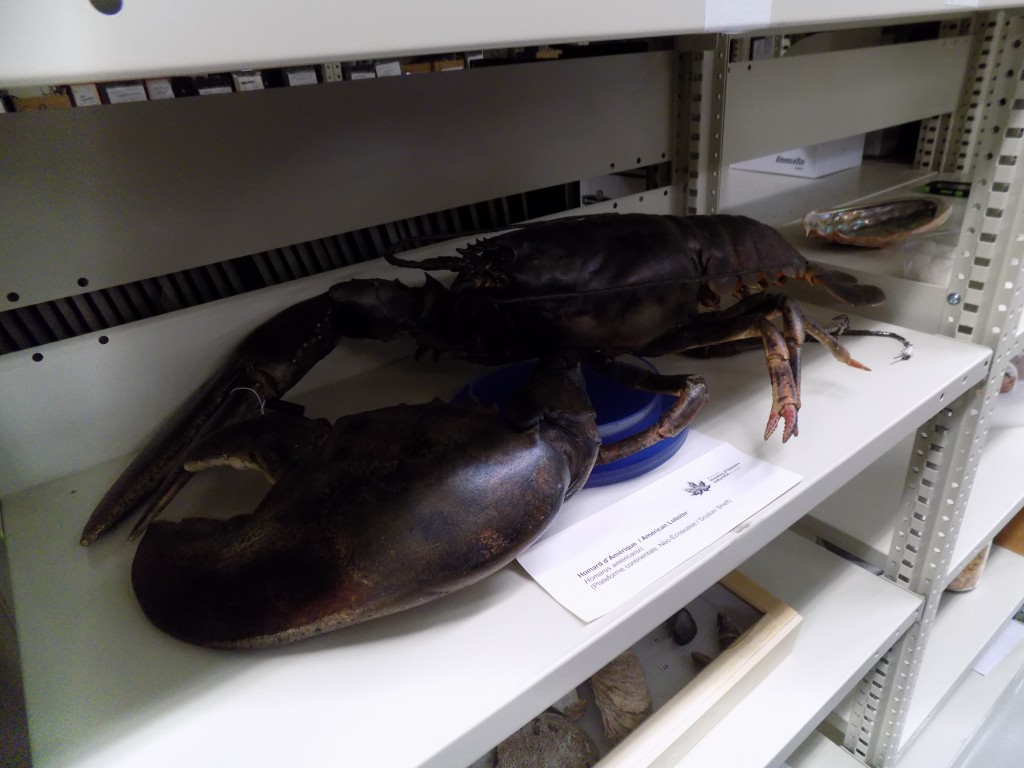
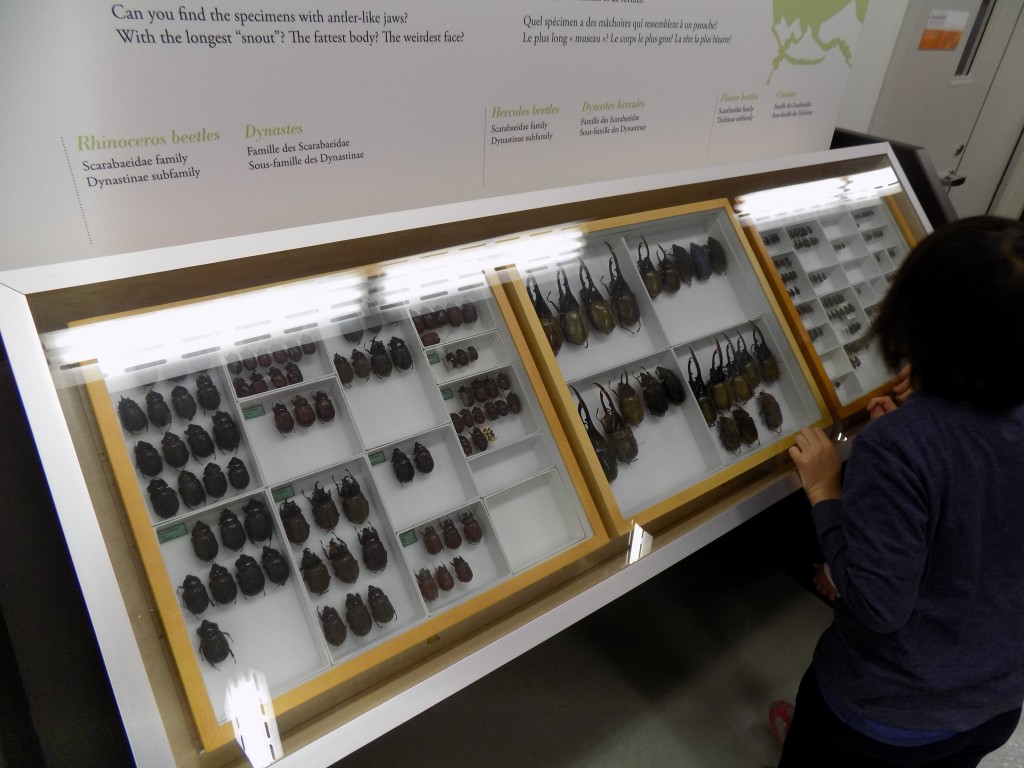
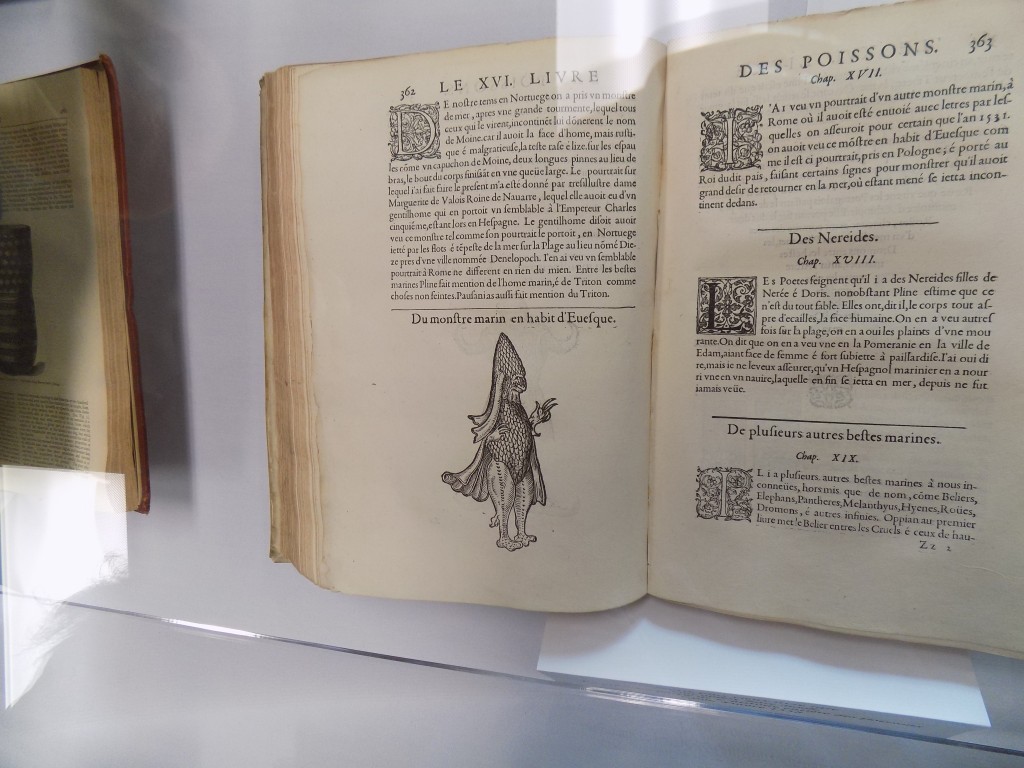
.jpg)

